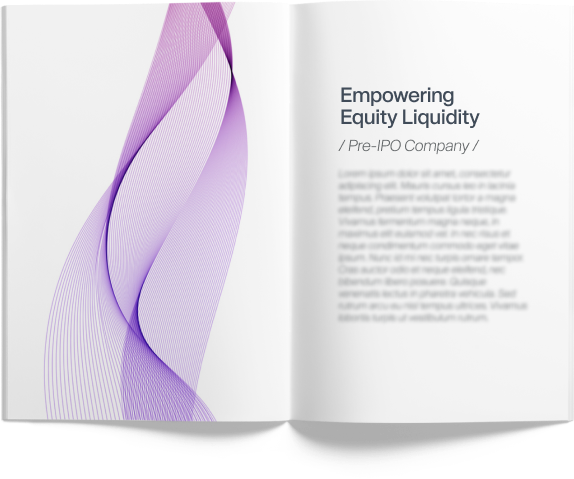Private Market Glossary
What does pre-IPO company mean?
A pre-IPO company is an entity that has yet to have an initial public offering (IPO). Therefore, a pre-IPO company is a privately owned business. While essentially all private companies could be considered pre-IPO companies, generally this term is reserved for businesses that appear on track for an upcoming IPO, whether in the near term or further into the future.

A better understanding of pre-IPO companies
For-profit companies generally fall into one of two categories: public or private. If a company is public, that means generally anyone can buy and sell that company’s stock. If a company is private, its securities typically trade on a more limited basis among accredited investors. A pre-IPO company exists in the private realm, but it’s typically a company that could be on its way toward entering the public realm. For example, a startup moving through the pre-IPO stages might have gone from seed funding through Series D funding, and as it matures, it might seem likely that an IPO is next. Keep in mind, though, pre-IPO companies may also choose to not go public at all.
Going public via an IPO can provide significant liquidity to early investors and employees, while also giving companies a chance to raise more capital and receive clear valuations. Although companies can go public through other approaches — such as a direct listing, which means directly selling existing shares on the public market — going public is often synonymous with conducting an IPO. So, a pre-IPO company is one that seems on track to go public via an IPO, although it might end up staying private for many years, being acquired, or having a direct listing. Of course, a private company could also go out of business before reaching any of these events.
What role do pre-IPO companies play in the private market?
The private market is generally composed of pre-IPO companies. So, in some sense, they are one and the same. However, if a company seems like it would remain private forever, such as a single-member LLC that’s too small to attract public market interest, then it probably wouldn’t be considered a pre-IPO company. When private market investors trade pre-IPO stock, they might be basing their decisions on their estimates of if/when an IPO will likely take place. For example, if a startup is maturing through fundraising rounds, such as Series A, Series B, Series C, etc., a private market investor might buy pre-IPO stock in the hopes that the company goes public at a higher valuation. Following the IPO, the investor could easily gain liquidity by selling that stock on the open public market (once any restrictions applicable to investors that held stock before the IPO go away), which is generally more transparent and has lower trading costs compared to the private market. Valuing pre-IPO companies can be complex and somewhat subjective, but savvy investors can look at information such as private market trading data and fundraising data to better evaluate a pre-IPO stock.
What are some examples of pre-IPO companies?
Some examples of pre-IPO companies* include:
*These are just a few examples of the many pre-IPO companies that exist. Keep in mind that this list is subject to change, such as if a company decides to stay private indefinitely amidst difficult market conditions, is acquired, or goes out of business.



